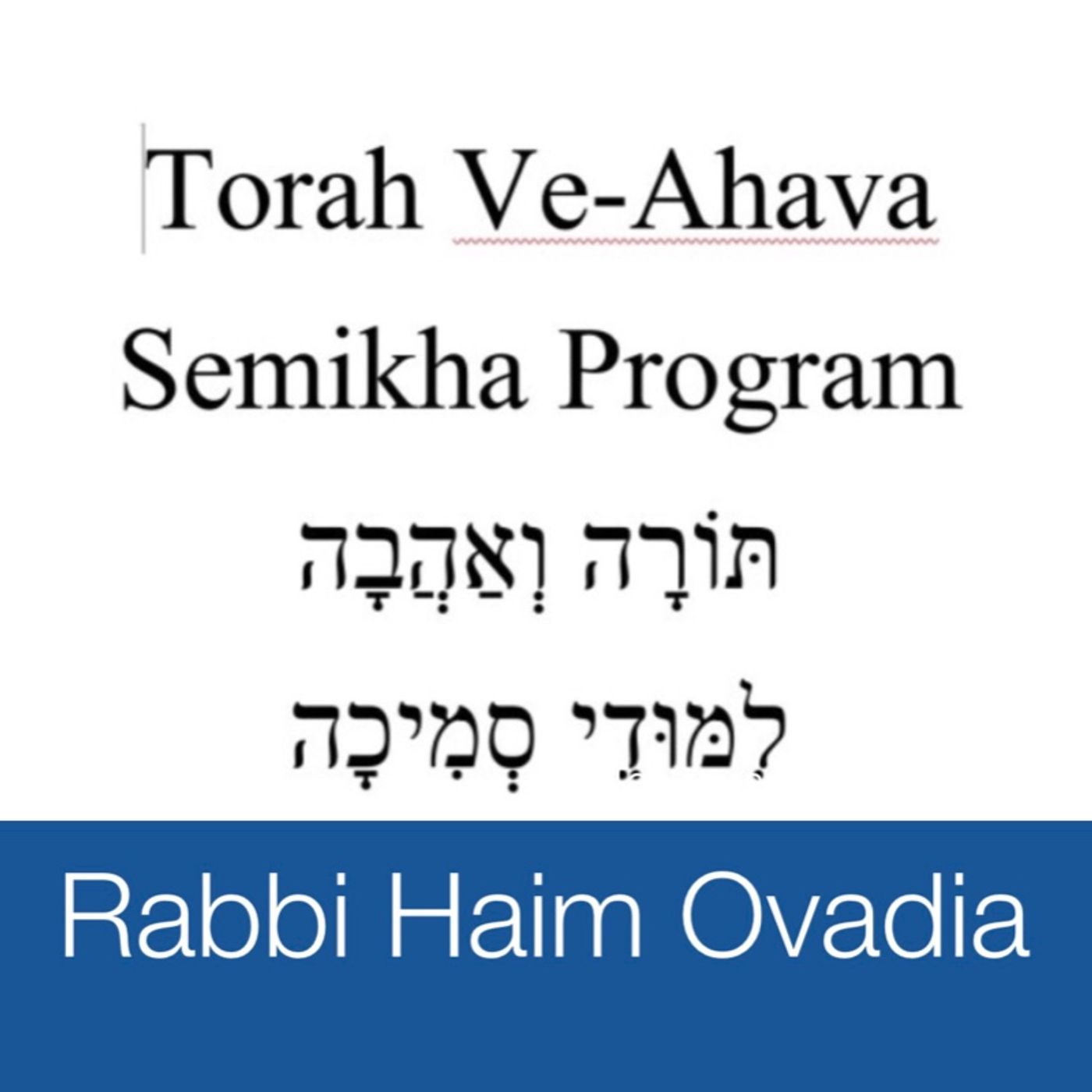Discover Semikha Program - Torah Ve-Ahava
Semikha Program - Torah Ve-Ahava

Semikha Program - Torah Ve-Ahava
Author: Rabbi Haim Ovadia
Subscribed: 20Played: 555Subscribe
Share
© Copyright Rabbi Haim Ovadia
Description
The Semikha Program is free and open to all. You can listen to and read select lessons and texts at your own pace, from anywhere. Your academic and Judaic background, as well as non-formal classes you attend, will be counted.
To join, email R Ovadia at rabbiovadia613@gmail.com
To join, email R Ovadia at rabbiovadia613@gmail.com
79 Episodes
Reverse
In this session we discuss the importance of listening to different voices, relying on the common sense of the people, and adjusting halakha to people's needs.
chapter 328 of Shulhan Arukh Orah Haim - Saving a life on Shabbat
Siman 261 in SH. The origin, meaning, and practices of candle lighting
The laws of Kiddush - Shulhan arukh 269-272
Here we wrap up the laws of Kiddush and continue into the laws of Shabbat prayers.
In chapter 301 the Tur explains his methodology in presenting the laws in the order he did. He speaks about general concepts of Shabbat. Chapter 302 (as well as parts of 301) is dedicated to the care of clothes.
This episode covers chapters 253-261. We discuss the issue of leaving food on the stove before shabbat and the way to determine the beginning of Shabbat.
Chapter 250 in Shulhan Arukh is the basis for the discussion of using timers or delayed action on Shabbat. You'd be surprised how many things can be done with the help of timers.Also, we discuss the term יש אומרים and the different approaches and style of Maimonides, the Tur, and R. Yosef Karo.
A continued discussion of transportation before and during Shabbat. Using bicycle. Also - a discussion of the methodology of the Shulhan Arukh and how to determine on your own what to do in a given situation.
Chapter 248: Traveling before Shabbat by boat, train, or plane. What happens if the journey continues into Shabbat?
Chapter 243 in Shulhan Arukh: Renting or leasing a facility of factory to a non-Jew for use on Shabbat, and related laws of commerce.
chapter 242 in Shulhan Arukh speaks of honoring Shabbat. the parallel chapter in Arokh HaShulhan expands on the 39 melakhot and several important Halakhic concepts which pertain to Shabbat.
This is the conclusion of our discussion of Melakhot Shabbat, how the list was formed, and its connection to the mishkan.
Introduction to the list of 39 melakhot of Shabbat following the research of Prof. Gilat
In this session we continue discussing the methodology of the Halakhic process. Which books and genres to use, electronic databases, and other research methods. We also discuss the importance of distinguishing between rabbinical and biblical laws.
In this session we examine the development of halakha and the process of making halakhic decision, based on questions raised by participants of the Semikha Program of Torah Ve-Ahava
In this session we cover the last chapters of Shulhan Arukh on Avelut, from 391 to 403. among the topics discussed: participating in a joyous activity, displaying sorrow on Shabbat, shiva and shloshim curtailed by holidays, staying at home during shiva, visiting the cemetery during shiva, prayers.
In this session we cover chapters 380-390 of Shulhan Arukh Yoreh Deah which speak about the prohibitions during Shiva and Shelohim, including shaving, bathing, washing clothes, working, attending celebrations and more.





